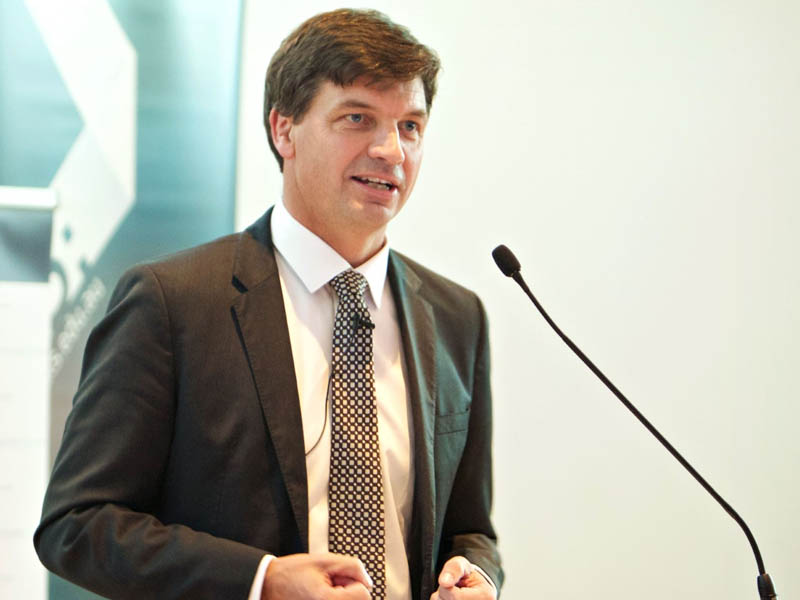The Turnbull Government has shredded its 15-month-old Plan A for digital service delivery, with a dramatic restructuring of the Digital Transformation Office into a new tech super-agency that has more power, more people, and an expanded remit to get stuff done.
Assistant Minister for Digital Transformation and Cities Angus Taylor will unveil the creation of the re-modelled and re-branded new transformation vehicle called the Digital Transformation Agency (someone clearly has a sense of humour).
Mr Taylor will also name a new interim CEO for the agency, with current DTO chief executive Paul Shetler being named as the Australian Government’s first Chief Digital Officer, operating from within the new DTA in its lead technical delivery role.

The interim CEO of the new super-agency is expected to be drawn from the ranks of the public service.
On the surface the newly-formed DTA may seem just a few key-strokes away from the DTO it replaces. But the changes are sweeping and involve a significant machinery of government re-engineering.
The super-agency, which will report through the Department of Prime Minister and Cabinet, will take control of ICT procurement from the Department of Finance, centralise the management and roll-out of major ICT projects from across government, and will continue to drive the core of government digital delivery ambitions.
The DTA will be a far more powerful tech delivery agency than the office it replaces. It has been armed with a broader set of incentives to get departments on board the Prime Minister’s whole-of-government digitisation plans.
The procurement lever alone will give the DTA a powerful new weapon – to be wielded as both a carrot and a stick – to accelerate the delivery of digital services.
It is understood existing Digital Transformation Office staff in both Sydney and Canberra were briefed on the changes late yesterday. The affected Finance Department units were thought to have been briefed earlier.
Included in an array of initiatives is dramatically changed governance structure that includes the creation of a new Advisory Board for digital transformation chaired by nation’s most senior public servant, the Secretary to the Department of Prime Minister and Cabinet Martin Parkinson.
The advisory board will be made up of senior technology and change management executives drawn from not only the ranks of the Australian Public Service, but from the private sector both here and overseas.
Mr Taylor will also today outline details of a “small, high-calibre” Program Management Office that will operate within the new Digital Transformation Agency, staffed by a mix of senior public servants and tier one change management specialists from the private sector who have delivered large-scale change programs in other industries.
The powerful new program management office will track ICT and digital projects across the whole of government, accelerating take-up and stepping in to remediate where things are not working.
The program management office will also oversee the better collaboration between departments and agencies and co-ordinate the sharing of systems and process – and code – that have been tried and tested in one part of government, to ensure it is not merely duplicated in another.
Speaking to InnovationAus.com yesterday, Mr Taylor said the changes to Paul Shetler’s role – Mr Shetler had been recruited in July last year to run the DTO from the UK’s Government Digital Service – was a reflection of the expanded realm of activity that will be undertaken by the new tech super-agency.
“This is a significant broadening of what we are doing in the digital transformation of government,” Mr Taylor told InnovationAus.com. “It is a significantly expanded remit, and it does require a different mix of skills.”
That skills mix includes a heavier emphasis on change management experience and expertise, and Mr Taylor clearly favours bringing in successful private sector talent to fill a current program management gap in the Australian Public Service.
Ultimately the changes would accelerate the delivery of digital services, he said, and provide a more strategic management of the government agenda. Mr Taylor said the goal remained to build greater user satisfaction – to make citizens happier with government services – and to build simpler systems.
The creation of an advisory board chaired by Dr Parkinson signals the priority the digital agenda has been given in this government (if there was ever any doubt.)
He says although there are significant machinery of government changes that will flow from today’s announcement, it is not expected that job losses will result from the restructure.
Although no staff are expected to be shed from the current roster at the DTO, it is not immediately clear whether it will retain its base of operations in Sydney.
Just how the ICT procurement responsibilities will be shifted from the Department of Finance is not yet clear.
“These are significant announcements. The changes to machinery of government will happen from now. This is the trigger that now sets those machinery of government changes into motion,” Mr Taylor said.
In the ebb and flow of decentralisation and centralisation in relation to government technology oversight, the new structure brings management of whole of government ICT in tight – as tight as it has been in 20 years.
Effectively, the announcements today are changes that operationalise the Coalition’s election commitments. In particular, this relates to the implementation of a whole of government digital strategy – which is due in November – and the rethinking of the way government buys its ICT.
Do you know more? Contact James Riley via Email.

